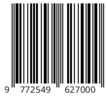Title:
Learning Model of Prose Appreciation Based on Inspirational Figure Story as an Effort to Build Students' Character
Author:
Abstract
This paper attempts to describe the prose appreciation model based on the inspirational experience of the character for Indonesian Language and Literature Education students. The development model is designed to improve student learning outcomes and as a follow-up to character formation. The needs of model development are obtained from questionnaires, observations, and interviews that include: (1) the need for teaching materials, (2) the needs of lecturers, and (3) the needs of the students. Characteristics of the model is based on the principles of model development obtained from the needs analysis. Referring to these two things can be obtained ten principles of learning model, including: (1) completeness principle, (2) cooperation, (3) effectiveness, (4) fun, (5) active learning, (6) modeling, 7) evaluative, (8) motivation, (9) variative, (10) mentoring, and (11) integrative. What model designs are based on the principles of development and the results of field studies and literature. Development of the model design consists of: (a) orientation stage (b) contemplation, (c) exploration stage, (d) imitation, and (e) generalization.
Keywords
Full Text:
PDFReferences
Asmara, R. (2017). Rekonstruksi pembelajaran menulis berbasis wacana gender dengan pendekatan persidangan. Transformatika: Jurnal Bahasa, Sastra, dan Pengajarannya, 1(1), 106-122. Retrieved from http://jurnal.untidar.ac.id/index.php/transformatika/article/view/248.
Gall, M.D., Gall, J.P., Borg, W.R. (1983). Educational research an introduction (7th ed.). New York: Pearson Education, Inc.
Joyce, B., Weil, M., Calhoun, E. (2000). Models of teaching. Fifth Edition. USA: Allyn and Bacon A Simon & Scuster Company.
Nurgiyantoro, B. (2005). Sastra anak: pengantar pemahaman dunia anak. Yogyakarta: Gadjah Mada University Press.
Piaget, J. (1974). The place of the sciences of man in the system of sciences. New York: Harper and Row Publishers.
Rusyana, Yus. (1998). Metode pengajaran sastra. Bandung.
Sayuti, Suminto A. (1994). Pengajaran Sastra. Yogyakarta: Pustaka Pelajar.
Sayuti, Suminto A. (2012). Pengajaran sastra dan kearifan lokal. Proseding Seminar Internasional PIBSI XXXV, Purwokerto.
Soekamto, Toeti dan Winaputra, Udin Saripudin. (1997). Teori belajar dan model-model pembelajaran. Jakarta: Pusat antaruniversitas.
Sudikan, Setyo Yuwono. (2009). Pembelajaran sastra yang apresiatif dan pembangunan kemandirian bangsa. Proseding Seminar Nasional Rekonstruksi Pengajaran Sastra, Semarang.
Suharianto. (2009). Sastra dan Pengajarannya. Proseding Seminar Nasional Rekonstruksi Pengajaran Sastra, Semarang.
Sugihastuti. (2009). Teori dan apresiasi sastra. Yogyakarta: Pustaka Pelajar.
DOI: https://doi.org/10.31002/transformatika.v2i1.620
DOI (PDF): https://doi.org/10.31002/transformatika.v2i1.620.g591
Article Metrics
Abstract view : 467 timesPDF - 0 times
Cited By
Refbacks
- There are currently no refbacks.

This work is licensed under a Creative Commons Attribution-ShareAlike 4.0 International License.


.png)
.png)
.png)



















 Abstract views : 467
|
Abstract views : 467
| PDF views : 0
PDF views : 0